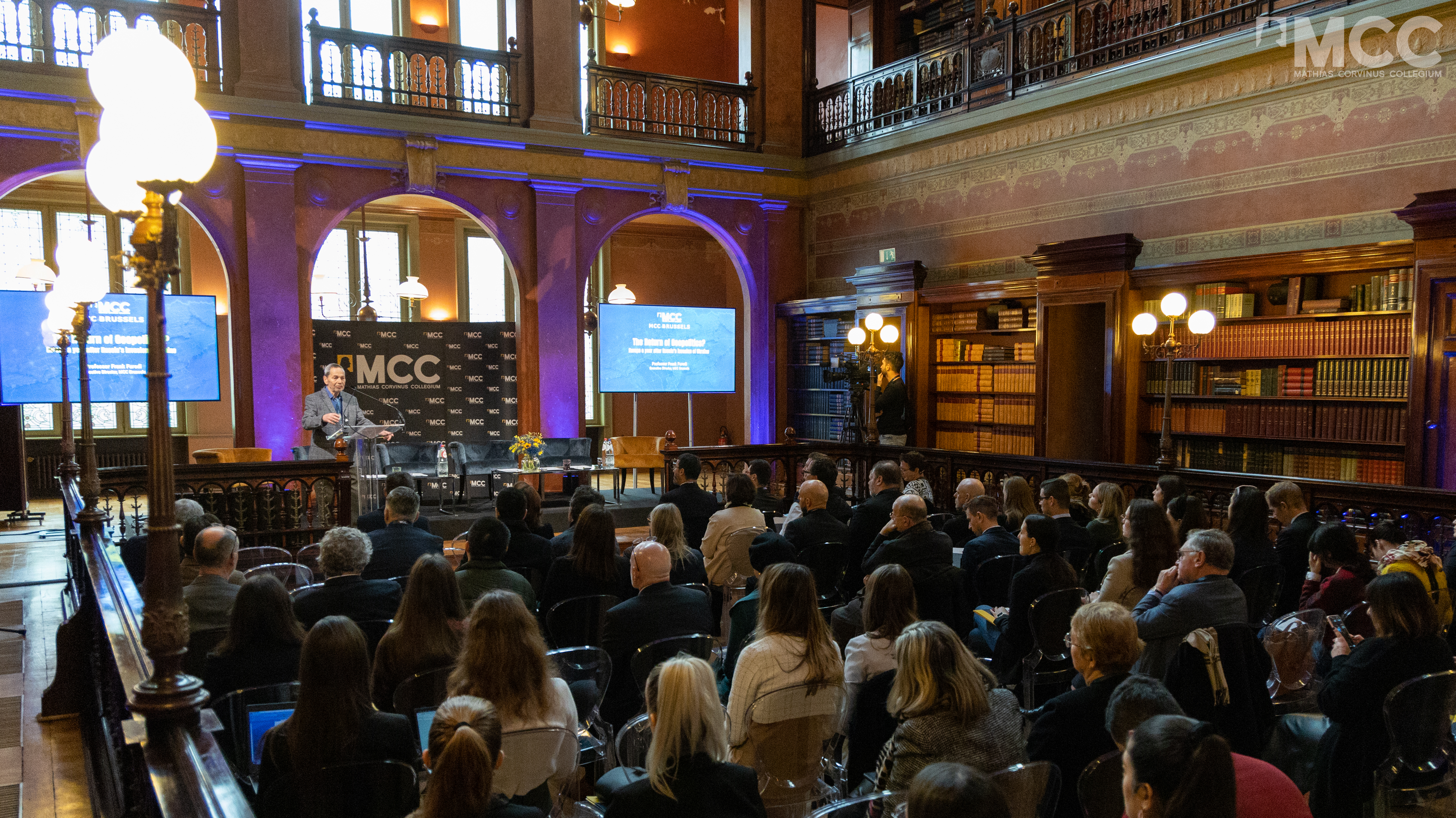Reading time: 11 minutes
MCC Brussels’ conference on the first anniversary of the Russian-Ukrainian war examined the changed geopolitical landscape and asked participants to reflect on what the war means for Europe.
MCC Brussels gathered together a number of Europe’s top thinkers in international relations, strategy, military and international history to assess how Russia’s invasion of Ukraine had upended the international order, challenged assumptions about European history, and forced us to again confront the nature of geopolitics.
The tone of the conference was set by the opening remarks of Prof. Frank Füredi, executive director of MCC Brussels. In these, he called for a genuine and honest debate about the challenges facing Europe and highlighted the importance of letting very different perspectives be heard. He stated that geopolitics have never taken a leave of absence, the only thing that went away is the understanding that geopolitical issues are the ones that truly matter.
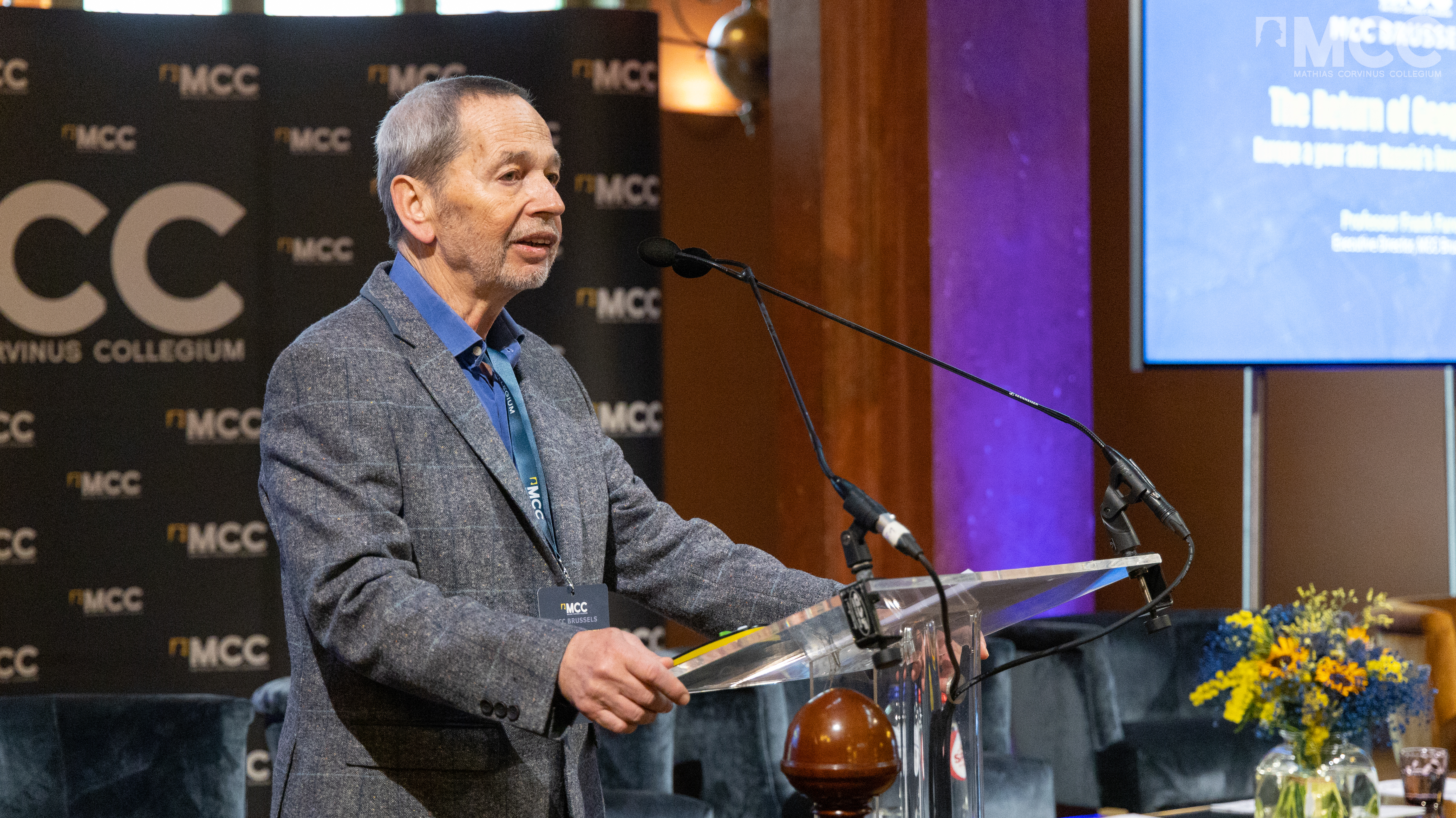
Panel I: The New Global Order – The Return of Great Power Politics?
In the first panel, a wide-ranging discussion took place on the matter of the nature of power, the importance of demography and how the global word order is shifting. Prof. Petr Drulak, Professor at the Department of Politics and International Relations, University of West Bohemia, focused on the nature of power and noted how overt displays of power highlight not strength but weakness: the truly powerful do not need even to demonstrate their power for their wishes to be fulfilled.
Dr Robert C. Castel, Chief Security Officer, Israel Nature and Parks Authority, argued that demography is of vital importance to the question of power, and that the US, Russia, and China are powers in decline, because they are facing substantial demographic challenges. In Castel’s opinion, in the new global order, there will be no superpower, therefore the instability of our world will be greater.
Dr Caroline Galacteros, Founder and Chairman, GEOPRAGMA, agreed with Castel that there will be a multi-polar and poly-aligned world and so we have witnessed ‘the end of the end of history’. She lamented that European countries are collateral victims of the US’ attempt to maintain its hegemony. She said, in the eyes of many countries, “Putin is gaining influence worldwide because he is the first man to stand up to Washington”.
Dr Réka Szemerkényi, Senior Advisor, Transatlantic Strategy, International Republican Institute, argued that we are at a historic moment – one equally as significant as the 1990’s and the collapse of the Soviet Union. She suggested that the war in Ukraine upended the assumption that economic interdependence would bring stability. She raised worries that a chasm is opening up between the big global challenges – such as climate change, mass migration and future pandemics – and the ability of international organisations to handle them.
Prof. Jean-Robert Raviot, Professor in Russian and Post-Soviet studies, Université Paris Nanterre, outlined three variations of the Clausewitzian view: the “classic Clausewitz” war is the continuation of politics by other means; a “post-modern Clausewitzian” view where the role of war becomes ultimately ideological; and a “post-modern anti-Clausewitzian” view where war is seen as an illegitimate way to pursue political objectives and so becomes ultimately “virtual” in a difficult to define way.
During the panel discussion, the Hungarian MEP Balázs Hidvéghi made a plea from his position in the audience for real debate about the issues facing Europe, noting that in many EU circles frank discussion is pre-emptively shut down. This, he argued, makes it hard for us to understand what is really going on.
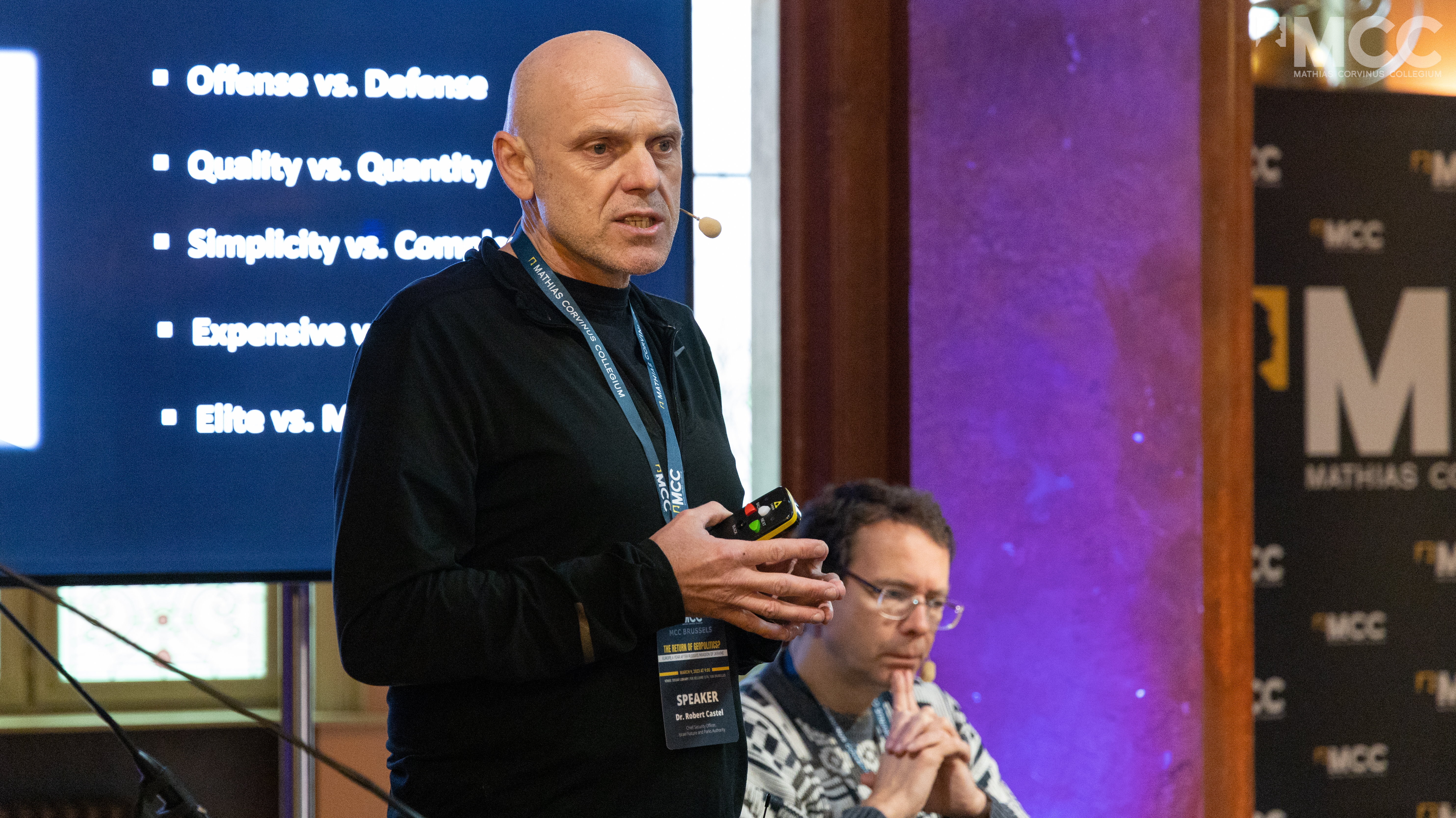
Keynote: Europe’s Drift into Irrelevance? An American Perspective
In his keynote speech, Prof. S. John Tsagronis, Professor of Statecraft and National Security Affairs at The Institute of World Politics in Washington, D.C., highlighted that although Europe is not irrelevant, it is far from the unified entity that some aspire for it to be. He also highlighted the importance of nuclear power: “Were not Russia a nuclear power, we would be having a very different conversation today”. Tsagronis further elaborated on the relations between the USA, the Russian-Ukrainian war and Europe. While it is true to say that the US lacks truly strategic thinking about its role on the world stage, the war in Ukraine demonstrates without doubt the American commitment to international law, democracy, and human rights. As someone who believed in the shared history of the US and Europe, Tsagronis asked some tough but essential questions: Why can’t Europe handle Russia in Ukraine? Why can it not do it without US involvement?
A notable theme from the audience discussion was the internal challenges facing both Europe and the US: war fatigue, political instability, and divisions.
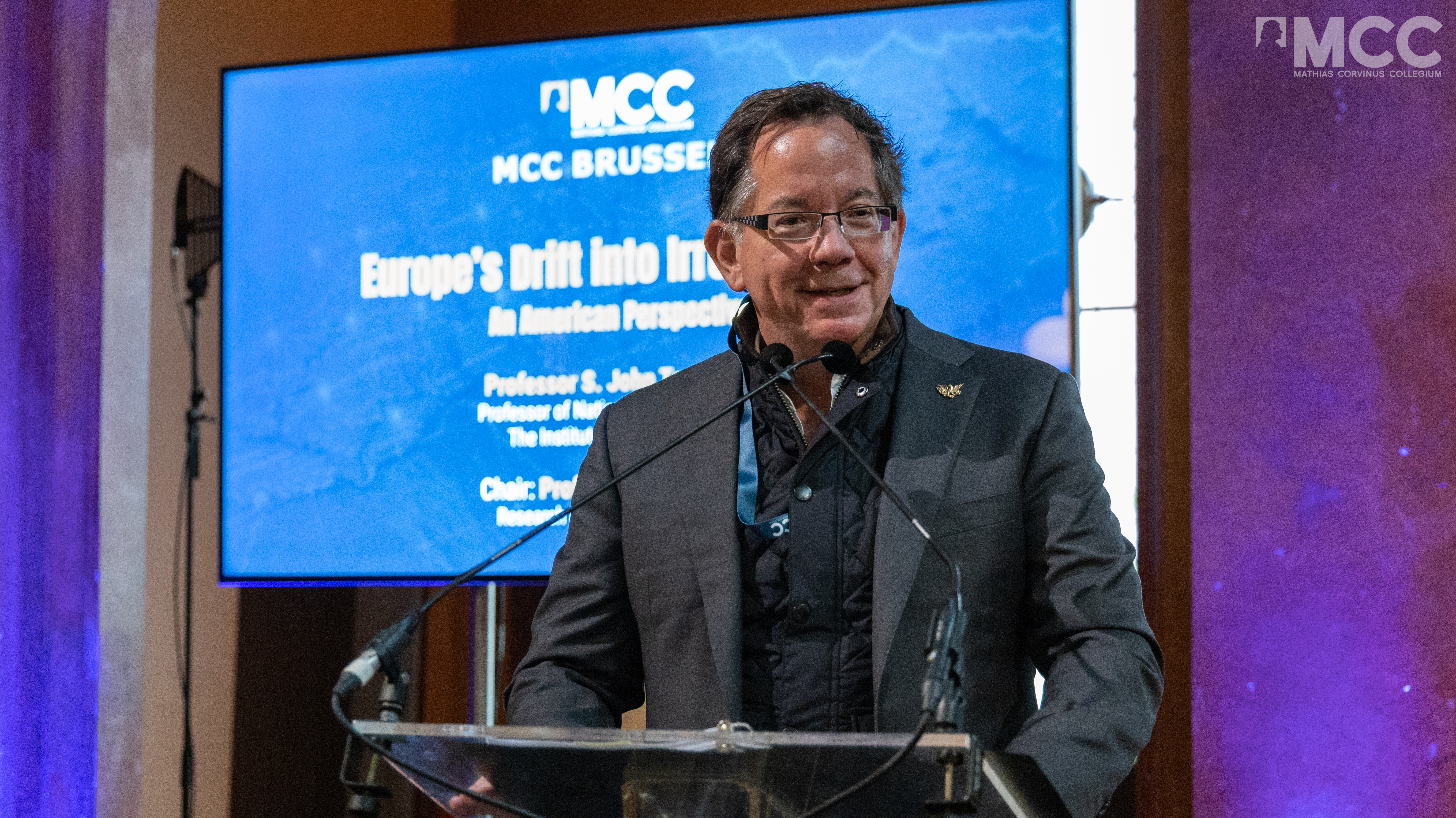
Panel II: Western renewal or global competition: Prospects for NATO, USA, and the EU
During the second panel discussion, Dr Monika Bartoszewicz – Associate Professor in Societal Security and Safety, Arctic University of Norway – noted that we have two wars on our hands: the one that takes place and the one we talk about. She elaborated that there needs to be a narrative to keep us engaged, but that narratives do not win wars. She asked, “are we sure we can win this war of attrition?”. She argued an unintentional result of the war is it has stopped German-Russian cooperation: “Maybe not intended, but that is the result”. Regarding the West’s and Europe’s stance on the topic of war, she asked if the West really wanted to end this war as soon as possible and stated that Europe is caught in the crossfire, which is not entirely of our own making.
Dr Philip Cunliffe, Associate Professor in International Relations, University College London, argued that the inability of Western elites to define any national interest was ultimately rooted in the fact that member states of the EU and NATO do not draw their legitimacy from their own people, but rather from political interaction with each other. He stated the problem of today is that we live in a word where Europe is unable to exert any political independence. Cunliffe highlighted the importance of national politics: “The only viable basis for international politics is one based on national politics”. Instead of real politics, we see “kidnapped ideas”, captured by political systems of supranationalism, that in the process have been transformed. He mentioned human rights as a glaring example: “They become rights at a global level without a state to represent them.”
Niccolo Soldo, geopolitical analyst and author of the blog Fisted by Foucault, noted that Europe’s moment is far, far away, because we can’t agree on what Europe agrees on. Regarding the future he asked: “what happens when the US’ interests diverge from Ukraine’s interests?”, highlighting that the two interests are not the same.
Dr Diego Fusaro, of the Istituito Alti Studi Strategici e Politici, Milano, lamented the relationship between Europe and the US, which he called a master and servant relationship. Controversially, he argued that today Europe is forced to support Ukraine against its own interest.
Dr Arta Moeini, Research Director, Institute for Peace & Diplomacy, argued that the world was increasingly fracturing into a large number of competing geopolitical zones, and that the era of American dominance was coming to an end. Ukraine, he suggested, will be the last stand for the American ideology.
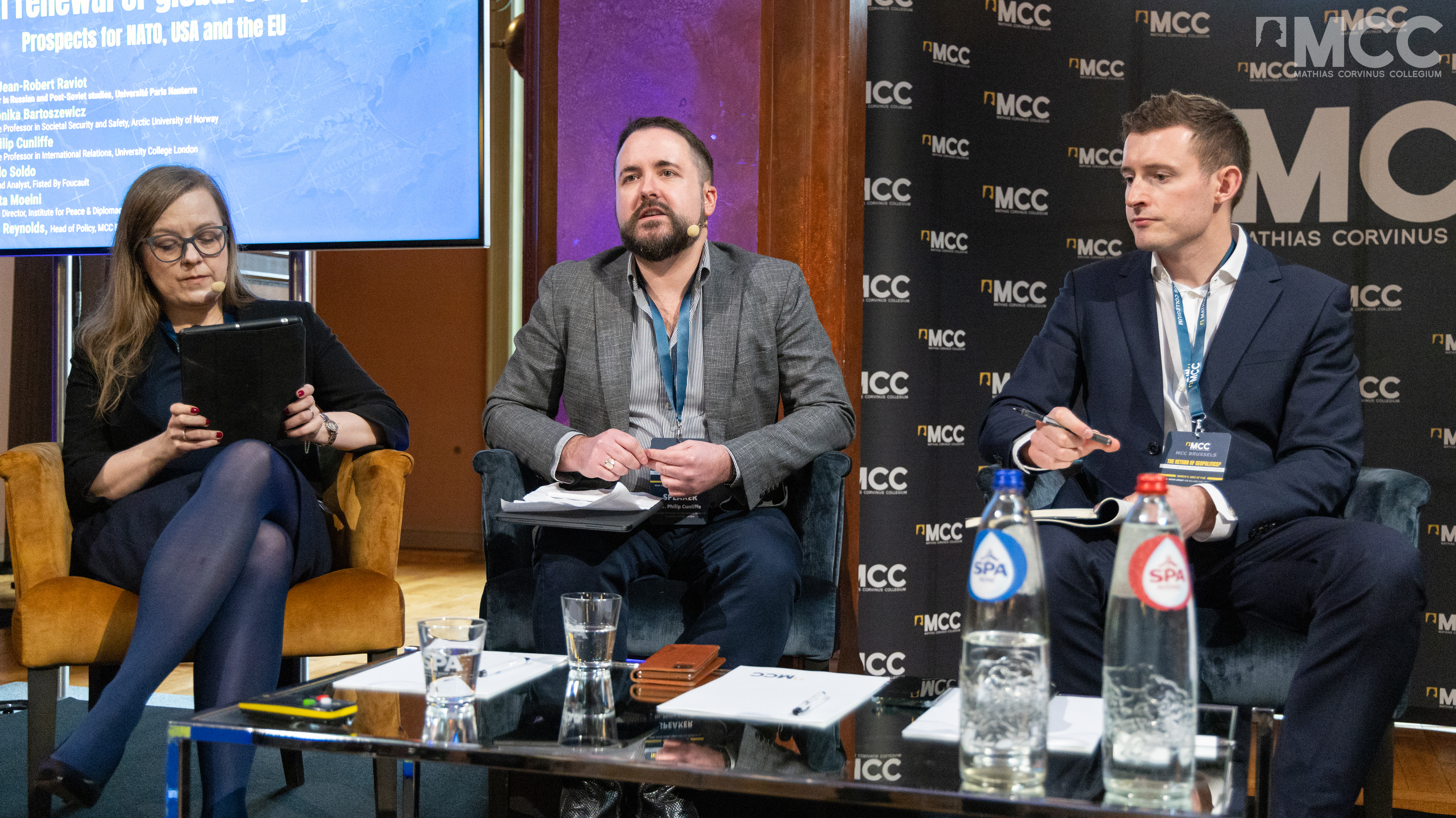
In Conversation with Frank Füredi: One year after the invasion: Has geopolitics returned?
Prof. Frank Füredi with the company of Dr Bálint Somkuti, Research Fellow, MCC Centre for Geopolitics, discussed the importance of geopolitics. Füredi said that geopolitics has become a dirty word: we live in a world where it puts permanent prejudice on a word if it has been linked to Nazism.
Füredi emphasised that it appears that the war cannot be won by either side, but also neither of the sides can afford to lose. He underlined that the Western world lost its capacity to conduct geopolitics. As he elaborated, “the Western world became illiterate when it comes to foreign affairs”. Regarding the West, he mentioned that when one talks about the idea of national interest people look at you “as if you are a pervert”. Füredi argued the central problem of our time is a moral disarmament of the West: “The Western world has ceased to have the capacity to use a moral language. A language of right and wrong”, and that without such language, we lose the capacity to find our national interest.
His conversation partner Bálint Somkuti said that in regard of the war, we have good news – the Russian’s forgot how to wage a war – yet we have the bad news that they are starting to relearn it. Somkuti said there is nothing we can do with a nuclear power; we can’t force it into one corner. “Everyone is expecting a silver bullet, there isn’t one.”
Regarding the changes in the tactics of war, he mentioned the attack on the Nord Stream: “we have come to the point of no taboos. An area where nothing is scared.” He mentioned there are no more declarations of war: “The last 20-25 wars have not had a declaration of war. The neatly organised lines and peace accords have vanished, we need to be ready for a war to start at any time”.
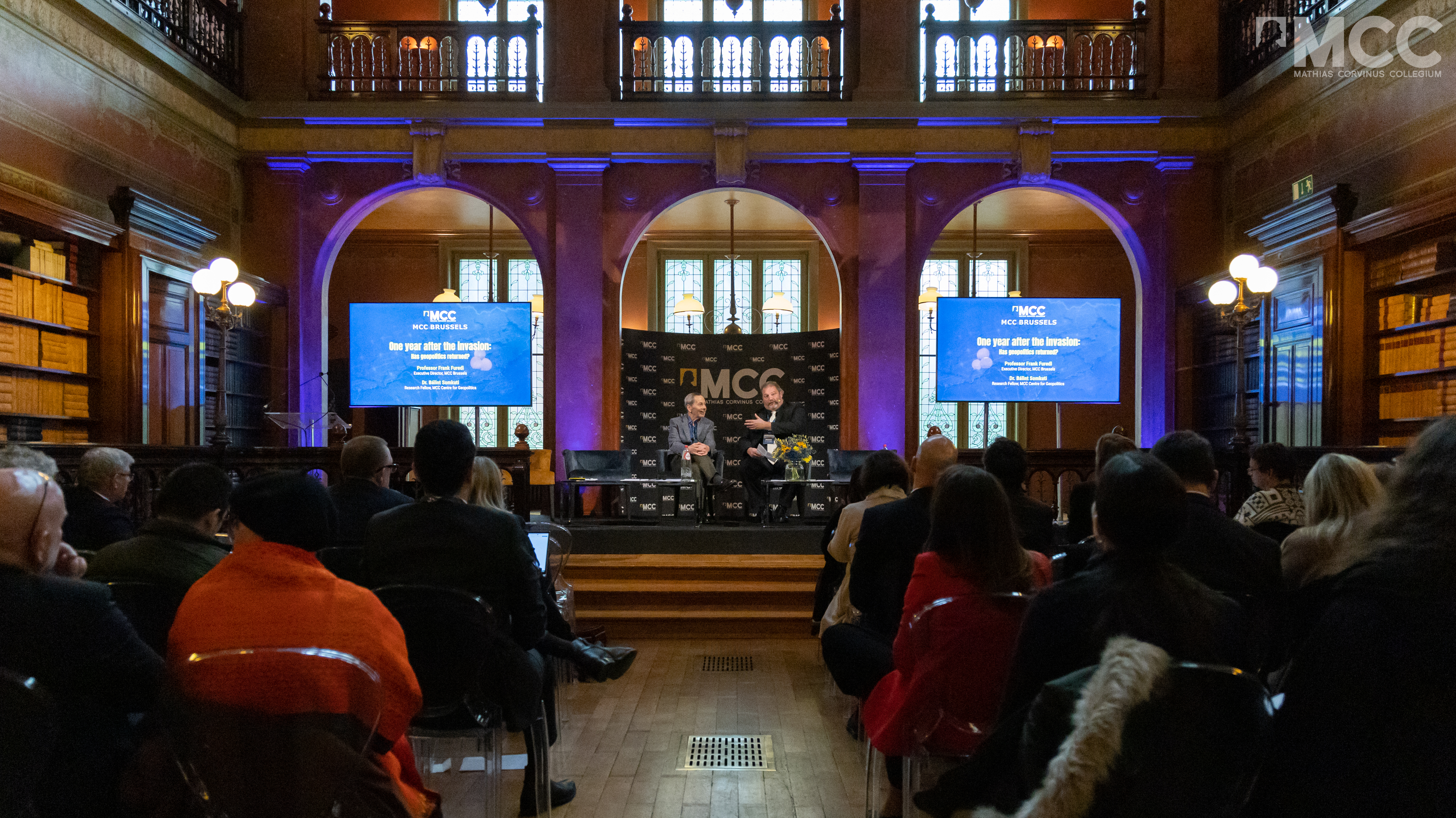
Panel III: Sanctions, energy and how to solve the “Russia question”.
The third panel brought some more heated debates, as it featured Svitlana Morenets, a Ukrainian journalist now with the Spectator in London. Morenets started the panel by articulating the general Ukrainian position on the war and aiming to dispel some misconceptions: the only thing Russia brought to her country is misery and darkness. She lamented that Ukraine has been fighting Russia for years, without much interest from the West. She argued that “Aiding Ukraine is an investment for you … you fight Russia with our hands and your soldiers don’t die. You suffer from increased gas and energy prices; Ukrainians pay in blood.”
Dr Ralph Schöllhammer, Senior Lecturer, Webster Vienna Private University, highlighted what he took to be the central problem: to be a great power, you need the capacity and the will. Europe has the capacity, but not the will. When looking back at what had happened in Afghanistan, he used a metaphor: “The Americans had all the watches, but the Taliban had all the time in the world”. Against some of the speeches that presented geopolitics as a series of iron laws, he gave advice to the attendees: “Don’t be blinded by the present, we don’t know who the powers of the future will be”.
Prof. Maria Engström, Professor of Russian, Uppsala University, analysed the civilizational rhetoric in Russia and the dangers it poses to the West. According to her research, Russian politicians were increasingly articulating a dark worldview which positioned them in existential conflict with the West. Dangerously, she noted that this was not grounded in a clash of interests, but instead in the language of a clash of civilisations.
Dr Germano Dottori, Scientific Adviser to Limes, Italian Review of Geopolitics, told the audience that the West took the decision to put sanctions on Russia, not to topple the regime, but to put extra costs on the regime and the battlefield. He elaborated that the people were encouraged to cut off or reduce dependency on Russian gas and oil, and the USA at the same time started to become again an energy exporter. He stated that the real problem is not the sanctions or the economic warfare, but the opinion of the public, which is in fear of being directly involved on the battlefield.
Prof. Bill Durodié returned to Morenets’ plea for Western support. He stated that, while it is natural that when an enemy comes “you want to repel them, and you expect others to jump to your support”, the truly difficult issue is that most EU elites cannot even spell national sovereignty, let alone support it. He noted that the world is afflicted by a total absence of positive vision. Even supposed challenger powers like China are unable to articulate an alternative world order. He emphasised that countries that are failing at their internal politics aren’t going to resolve international issues.
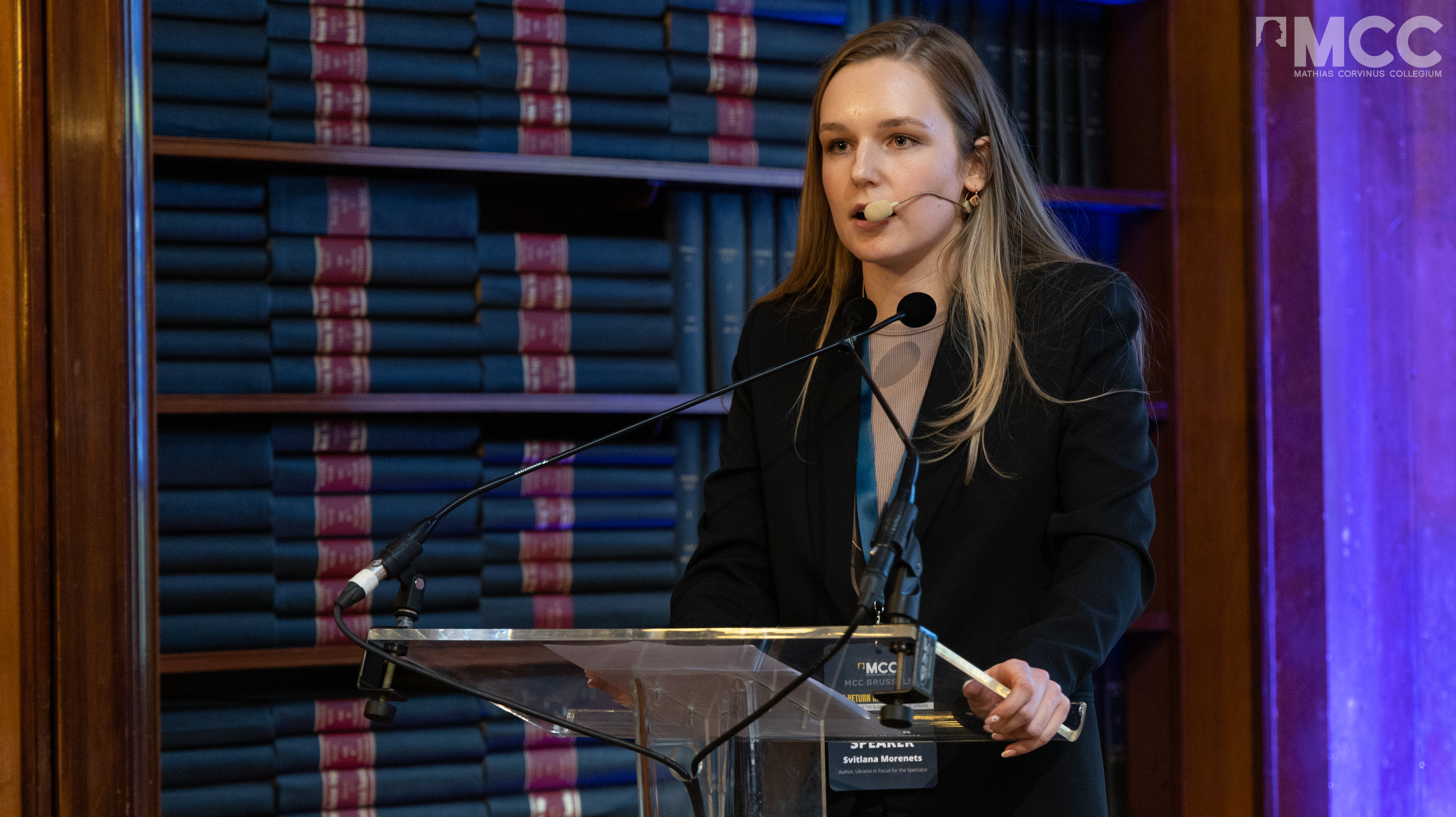
In sum, attendees noted that the event was a refreshing alternative to the typical discussions of international politics of the ‘Brussels Bubble’ – both because it presented a range of viewpoints and because it allowed, and positively encouraged, a genuine debate. Prof. Frank Füredi captured the importance of debate in his closing remarks: “only through debate and discussion can we hope to shine a light on the difficulties we face”.
